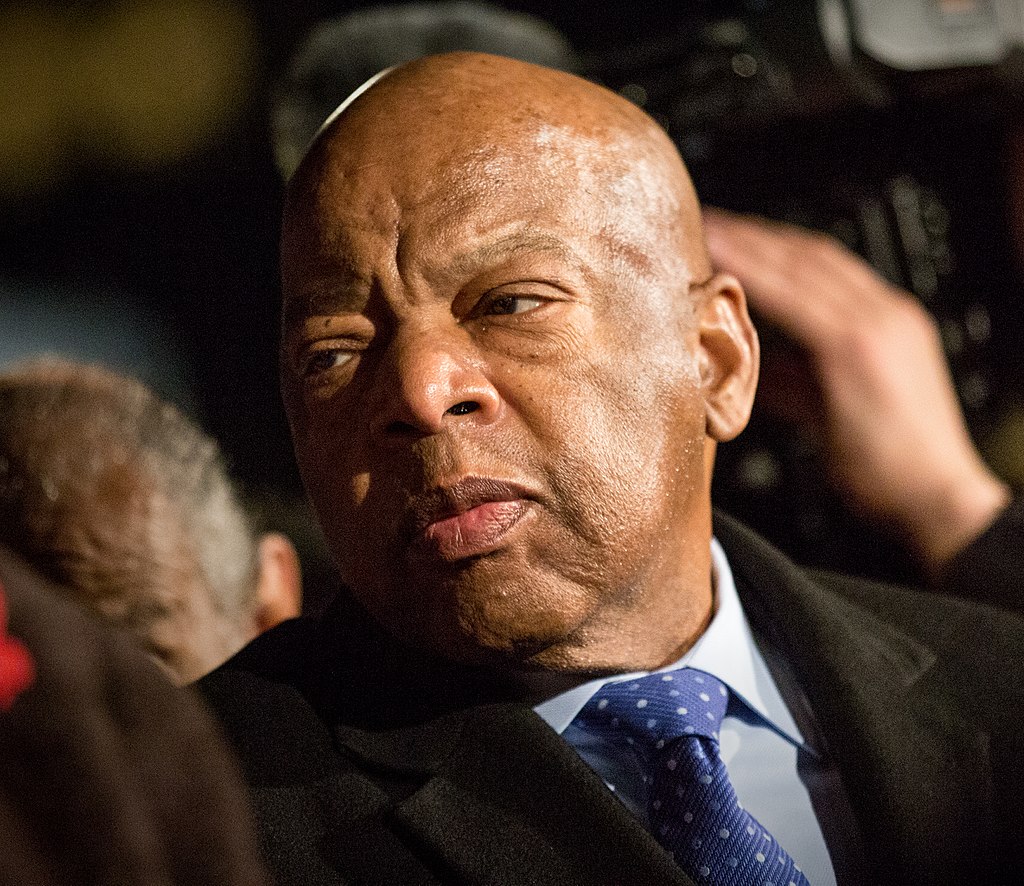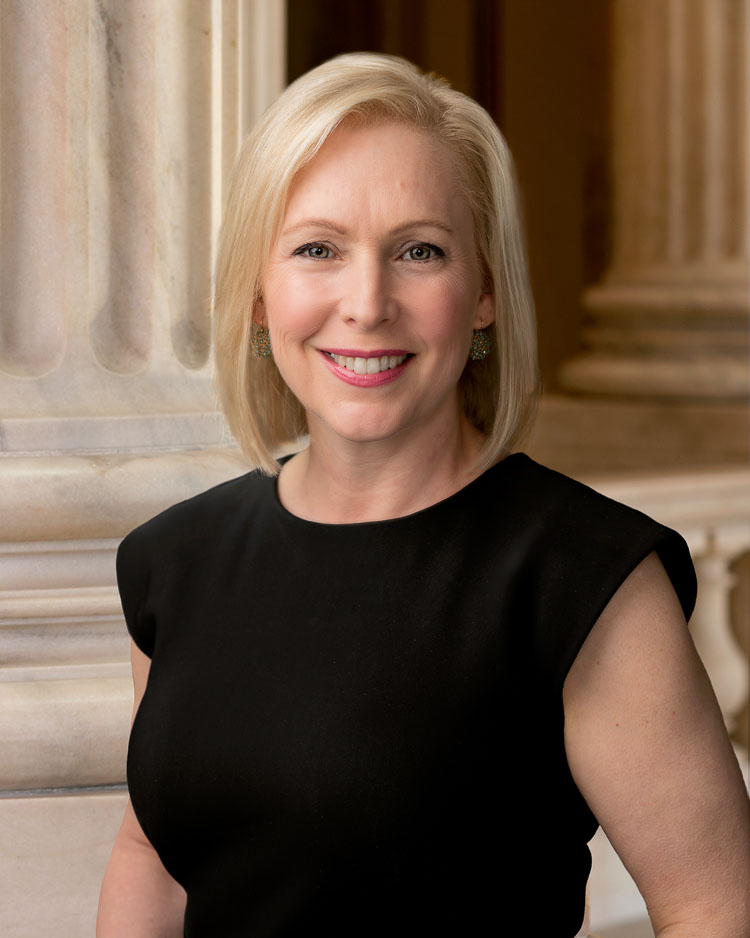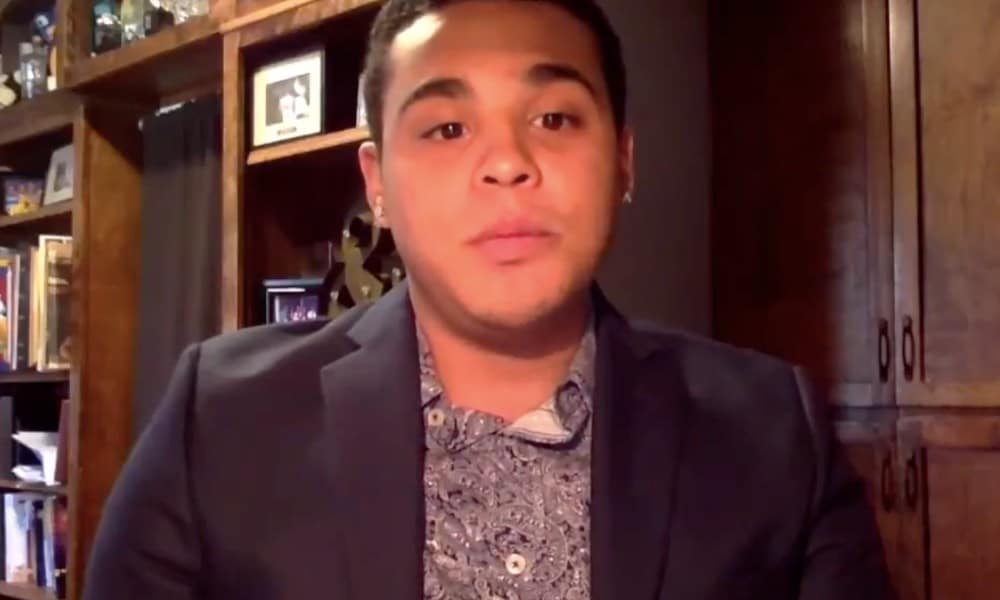
Continuing a decade-long effort, members of Congress are rallying to prohibit federally-funded foster care agencies from discriminating gainst prospective parents based on sexual orientation, gender identity, religion or marital status, and to protect LGBTQ youth from abusive “conversion therapy.”
In a virtual press conference hosted by the advocacy nonprofit Family Equality on Wednesday, lawmakers pledged to secure the passage of the John Lewis Every Child Deserves a Family Act. The civil rights leader and adoptive father had been one of the bill’s most persistent champions in the Capitol, and it was named in his honor following his death last summer.
“Our legislation would end this outrageous discriminatory policy and help give more children a loving home,” said New York Sen. Kirsten Gillibrand (D), who is sponsoring the bill. Underscoring its urgency, she invoked words once spoken by the legendary Lewis: “This bill is the right thing to do, and quite frankly it is long overdue.”
The bill has bipartisan support in the House, where it is being sponsored by Rep. Jenniffer González-Colón (R), the non-voting delegate from Puerto Rico. On the call, Rep. Danny Davis (D) said he is “super optimistic” the House will pass the bill this session. But the legislation’s future in the closely divided Senate, where it currently has no Republican backers, is less certain. With a one-vote majority, the Democrats can bring the bill to the floor, and Sen. Gillibrand said she is “hopeful” they will be able to negotiate the insertion of the bill into the next “must-pass” piece of legislation.
For years, foster care agencies have been able to draw taxpayer dollars while enjoying wide latitude to discriminate against LGBTQ prospective parents and others who didn’t conform to their beliefs. Across the country, otherwise qualified adults were often turned away if they were unmarried, not a Christian, or identified as LGBTQ.
If passed, the federal legislation would clarify thorny and emotional issues that have played out as more cities and states implement mandatory non-discrimination clauses for contractors. In a few weeks, the U.S. Supreme Court is expected to rule on a case brought by Catholic Social Services of Philadelphia. The agency refused to comply with the city’s non-discrimination clause, then sued the city for violating its First Amendment rights when, as a result, the city stopped using its services to screen prospective foster parents.
The bill would create new financial and legal consequences for foster agencies that continue to engage in discrimination. It would allow the Secretary of Health and Human Services to deny agencies the federal funding typically provided for foster care and child welfare services under Title IV-B and IV-E of the Social Security Act. The legislation would also empower individuals who feel they have been a victim of agency discrimination to sue for relief in federal court.
With 400,000 children in foster care nationwide, one-fourth of whom are waiting to be adopted, supporters of the bill argue that restricting the pool of potential foster parents directly harms the nation’s most vulnerable kids.

“Government has a unique responsibility to ensure that each and every child in foster care finds a loving, affirming family — not just the white ones, not the just the Black ones, not just the Christians, not just the straight ones,” said Rep. Danny Davis (D), one of Lewis’s longtime friends and colleagues. “This act promotes the best interest of children by increasing the number of foster and adoptive homes.”
Same-sex couples are seven times more likely to foster or adopt a child than opposite-sex couples, according to an analysis of 2016 census data. And they are also more likely to open their homes to older youth and sibling groups, who tend to be harder to place.
Meanwhile, as many as 3 out of 10 foster youth identify as LGBTQ, according to surveys in New York and Los Angeles, and they often suffer additional trauma due to discrimination and societal rejection. Young people who identify as LGBTQ are more likely to be kicked out of their family homes as teens and to end up in group homes rather than family settings.
In group care, the surveys show that LGBTQ youth are frequently targets of verbal and physical abuse perpetrated by other youth, and even staff members. Youth placed in group homes are also far more likely to age out of the system without a connection to a supportive adult, exacerbating their risk of homelessness, addiction and sexual exploitation.
But even those placed with foster parents remain in danger of abuse targeted at LGBTQ individuals. At Wednesday’s press conference, Schylar Baber, who founded the national advocacy group Voice for Adoption, described the painful years he spent in foster care in Montana. As a teen, his evangelical foster mother berated him with homophobic slurs and subjected him to so-called “conversion therapy” at her church.
“I was taught that I had a demon inside of me, that I was fighting for my soul, and that my sexuality was caused by possession,” Baber recalled. “No matter how much I prayed, I couldn’t pray the gay away.”
The new federal legislation would prohibit the use of conversion therapy in child welfare, sparing other foster youth from the same abuse. It would also hold states accountable for ensuring that foster agencies provide culturally competent care to LGBTQ youth as well as youth of color, those with disabilities, and religious minorities.

Additionally, the bill would create and fund a National Resource Center for LGBTQ+ youth in foster care, housed within the federal Administration for Children and Families. The center would be charged with identifying best practices for promoting “well being, safety, permanency, stability, and family placement” for LGBTQ youth. The bill would also require states to collect data on LGBTQ youth and families in foster care, gathering the first nationwide picture of these marginalized populations.
For LGBTQ youth facing an unforgiving world, finding an affirming family can provide a desperately needed sense of stability and belonging at a critical juncture in their young lives. Weston Charles-Gallo, a 21-year-old living outside Kansas City, Missouri, recalled how his anguish and isolation had led him to consider suicide after his birth family rejected him as a young teenager.
Things began to turn around when he and his siblings were placed in a foster home with two dads. He quickly came to see them as the mentors and role models he’d been looking for, and like him, one of his dads was biracial.
“I really felt a sense of security and safety, and that I would have affirming support from my family,” Charles-Gallo said. “We are not asking anyone to change their beliefs, we are simply asking to be affirmed and loved for who we are.”

But had he been entrusted to an agency that excluded LGBTQ foster parents, Charles-Gallo might have been left to face his teen years alone. That’s why advocates believe a federal law is needed to require all agencies to serve all youth and parents.
“Young people don’t get to choose the agencies that serve them, and many communities are served by only one agency,” said Dylan Waguespack, who leads public policy at True Colors United, which works to end homelessness among LGBTQ youth. “There’s no workaround to ensure that LGBTQ+ young people and parents can be protected from discrimination without requiring all agencies to abide by the same rules.”
Two decades ago, Marianne Duddy-Burke and her wife were turned away by a Catholic agency in Boston because the agency considered lesbians “unfit” to parent. They ultimately found another agency that would certify them, and have since fostered several young people and adopted two children. But she remembers several other same-sex couples they knew grew so frustrated and humiliated by how foster agencies treated them that they gave up on becoming foster parents.
As a young man, Rep. Lewis had joined the Rev. Martin Luther King Jr. on the steps of the Lincoln Memorial as the reverend proclaimed his dream for equality in America. More than 50 years later, as he pushed to end discrimination against loving parents, Lewis spoke of another simple hope.
“We must ensure that every young person and parent is able to enjoy the dream of a loving, stable family,” Lewis said. “And we must never ever give up on the right to be loved and the right to be human.”





